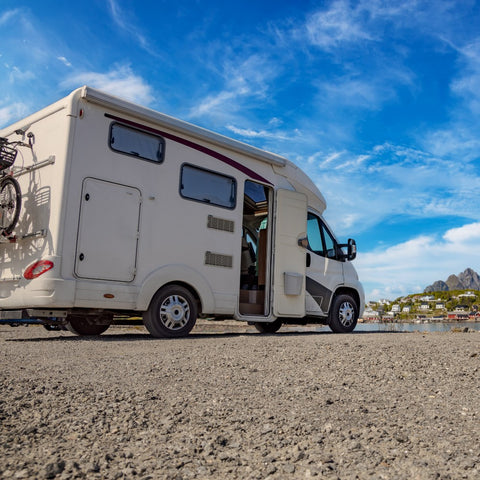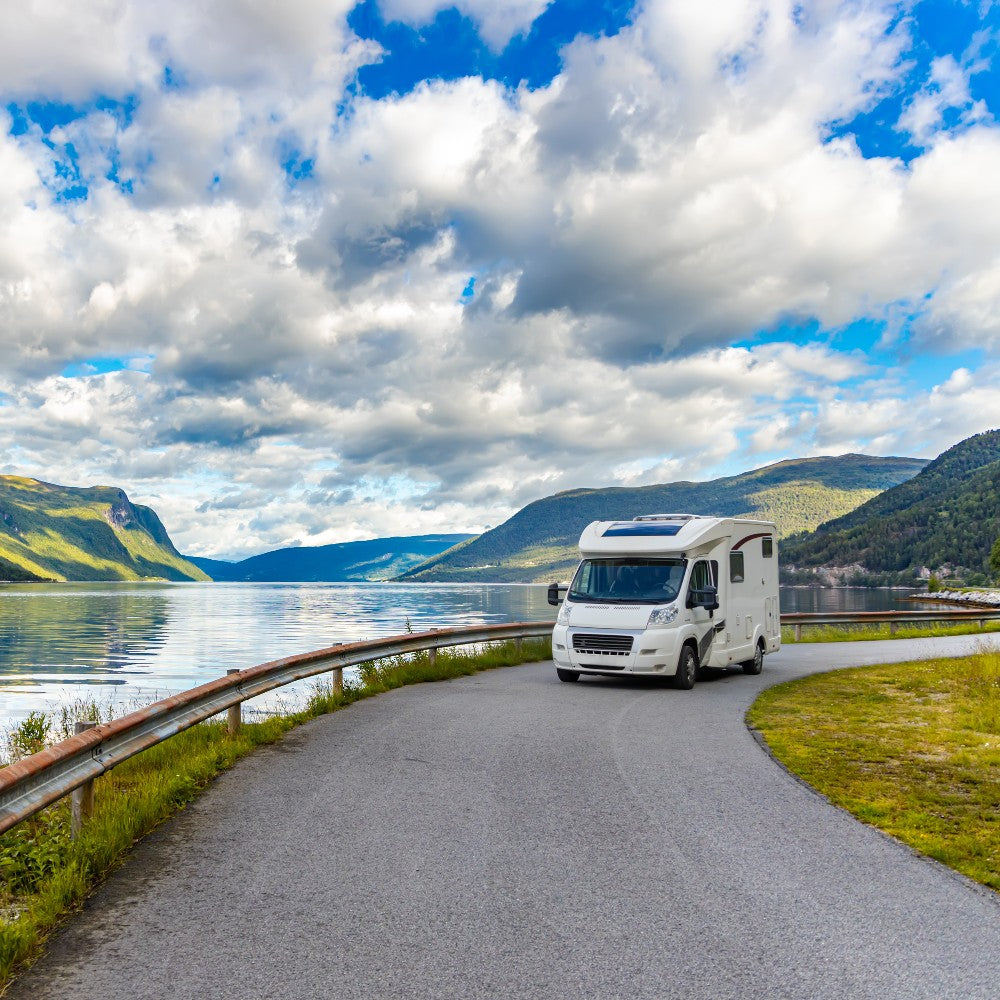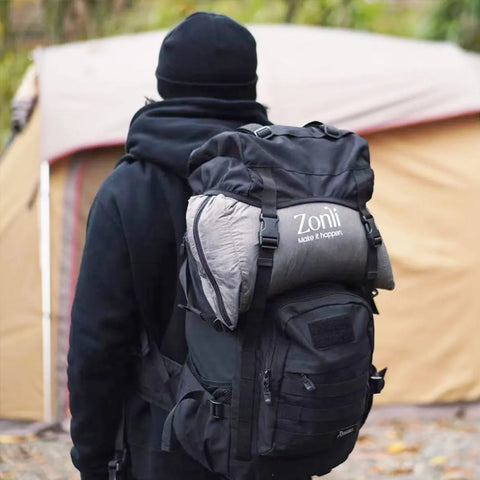Choosing the Part-Time RV Lifestyle: Benefits and Possibilities
Flexibility and Freedom
Part-time RV travel offers a remarkable blend of adventure and routine. With the freedom to hit the road whenever your schedule permits, you can explore new horizons while still honoring work commitments or personal responsibilities. This flexibility allows you to design your own itineraries, discover hidden gems, and immerse yourself in unique experiences without the constraints of a fixed schedule.
Cost-Effective Exploration
Part-time RVing presents a budget-friendly way to satisfy your wanderlust. While full-time RVing can involve substantial costs, opting for part-time travel allows you to allocate resources more efficiently. You can choose shorter trips to destinations closer to home, reducing fuel expenses and campground fees. Renting an RV can also be considered a part of the "Cost-Effective Exploration" aspect of part-time RV travel. This approach aligns with the concept of budget-friendly exploration for several reasons:
Lower Initial Investment: Renting an RV eliminates the need for a significant upfront investment that purchasing an RV would require. This is especially advantageous for those who are new to RVing or are unsure about committing to full-time ownership.
Reduced Maintenance Costs: When you rent an RV, you don't have to worry about ongoing maintenance and repair costs that come with owning a vehicle. Rental companies typically handle maintenance, ensuring that the RV is in good working condition for your trip.
Variety of Choices: Renting an RV allows you to choose the type and size of RV that best suits your specific trip. You can opt for a larger RV for a family vacation or a smaller one for a solo adventure, tailoring your choice to your travel needs.
Lower Depreciation Impact: RVs tend to depreciate over time, and renting helps you avoid the depreciation that comes with owning a vehicle. This can be particularly beneficial for part-time travelers who don't use the RV continuously.
Balanced Lifestyle
Balancing adventure with stability is a hallmark of the part-time RV lifestyle. You can savor the excitement of road trips and outdoor escapades while maintaining connections to your local community and existing commitments. This balance ensures you have a comfortable home to return to, fostering a sense of belonging and familiarity.
Selecting the Right RV: Types and Considerations

Size and Layout
Choosing the appropriate size and layout is crucial for a comfortable part-time RV experience. Consider the number of travelers and the amenities you require. A layout with adequate sleeping arrangements, kitchen facilities, and bathroom amenities ensures that you have all the essentials. Opt for a size that strikes a balance between comfort and maneuverability. A smaller RV might be more suitable for part-time travel, as it's easier to handle on the road and park in various locations.Storage and Weight Capacity
Evaluate the storage capacity of the RV, both inside and in exterior compartments. Part-time travelers often need to bring along essentials for shorter trips. Having ample storage ensures you can pack efficiently and have the items you need without cluttering the living space. Additionally, pay attention to the weight capacity of the RV. Overloading an RV can affect its performance and safety, so choose a model that can comfortably carry your belongings and any additional equipment.
Maintenance and Ownership Costs
Factor in the ongoing costs of RV ownership, including maintenance, insurance, and storage. For part-time travel, it's important to assess whether you're willing to commit to these expenses when you're not using the RV continuously. Some part-time travelers prefer renting or leasing an RV to avoid the long-term ownership costs. Others opt for smaller, more fuel-efficient models that are easier on the budget. Evaluate the financial implications and determine which ownership model aligns with your travel frequency and budget.
Crafting Your Part-Time RV Itinerary: Destinations and Planning
Research and Prioritize
Start by researching destinations that align with your interests, travel duration, and preferences. Consider factors like proximity to your home base, weather conditions, and attractions. Create a list of places you'd like to visit, and prioritize them based on your available time. For part-time travel, shorter distances might be more manageable, allowing you to maximize your time at each location.
Plan Flexibility
Part-time RV travel allows for spontaneity and flexibility. Instead of a rigid itinerary, plan a loose framework that accommodates unexpected discoveries and adjustments. Outline key stops and activities you want to experience in each destination, but leave room for detours or extended stays if you find a place you love.
Check Campground Availability
Research campgrounds and RV parks in the destinations you've chosen. Check their availability, amenities, and reservation policies. Since part-time travel might not coincide with peak seasons, you have a better chance of finding available spots. However, popular areas can still get crowded, so consider making reservations, especially if you have specific dates in mind.
Packing for Part-Time RV Adventures: Essentials and Tips
Full-time RVers live in their RVs year-round, necessitating a comprehensive approach to packing for all aspects of daily life. While part-time RV travelers embark on shorter trips, ranging from weekends to a few weeks. This means they can pack lighter and focus on essentials for the specific duration of their trip. Here's a step-by-step guide:
Make a Packing Checklist
Create a detailed checklist of all the items you'll need for your trip. Categorize items into sections like clothing, kitchen essentials, bedding, toiletries, outdoor gear, entertainment, and more. Having a checklist helps you avoid forgetting important items.
Efficient Clothing Packing
Roll clothes instead of folding them to save space and minimize wrinkles. Pack clothing in separate packing cubes or bags to keep things organized.
Bedding and Blankets
Pack bedding and linens such as sheets, blankets, and pillows. If possible, choose space-saving bedding options or vacuum-sealed bags to reduce bulk.
A Portable Heated Blanket
Compact Kitchen Essentials
Pack essential kitchen items such as utensils, pots, pans, and cutlery. Opt for compact and multi-functional items. Pre-pack non-perishable food items and spices to save time during meal preparation.
Toiletries and Personal Care
Bring toiletries in travel-sized containers to save space. Use toiletry organizers or hanging bags to keep things easily accessible in the bathroom.
Outdoor and Recreational Gear
If you plan to engage in outdoor activities, pack appropriate gear such as hiking boots, swimwear, or camping equipment. Make sure these items are clean and properly stored to avoid bringing dirt into the RV.
Medical and Emergency Supplies
Pack a basic first aid kit, any necessary medications, and emergency supplies like flashlights and batteries.


